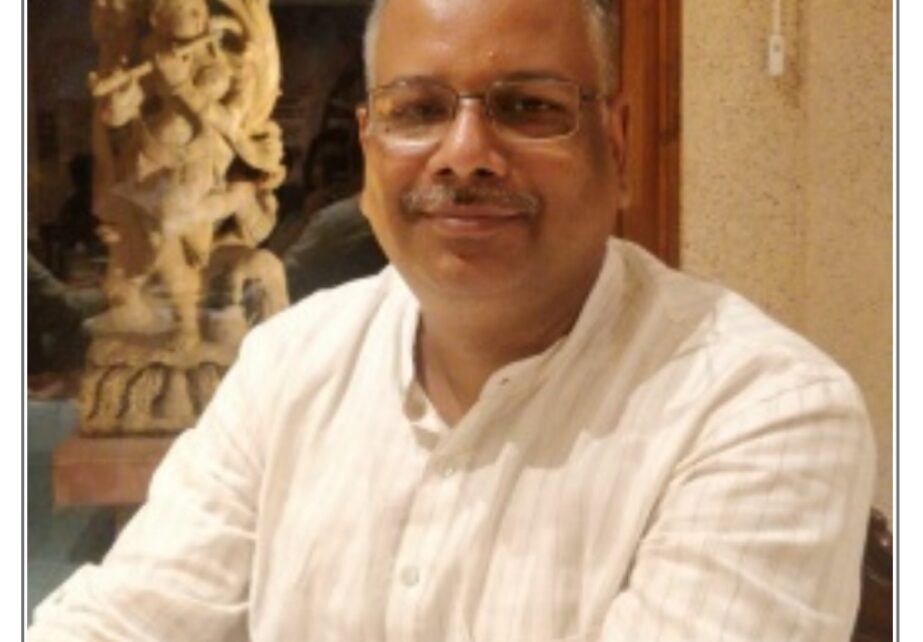While knowledge about menstruation and hygiene practices is common in the community, the culture of silence around the biological process and fact of life that girls and women experience during their reproductive age continues.
It continues to be surrounded by stigma and shame in most contexts and is a barrier to gender equality. Menstrual Hygiene Management is becoming recognized as a “critical health, WASH and rights issue”. Across the world there has been an increase in MHM programming as these serious barriers impact girl’s right, education, health, dignity, and participation in the society.
Promotion of safe menstrual hygiene activities not only provide an enabling atmosphere for positive gender outcomes but also contribute to achieving Sustainable Development Goals specifically SDG – 3,4,5 and 6. India is committed to achieve the 17 SDGs and 169 associated targets, which comprehensively cover social, economic, and environmental dimensions of development.
Our country is home to 355 million menstruating women and girls. Jharkhand state accounts for total of 1178240 adolescent girls enrolled in 6th to 12 standards under Department of School Education & Literacy which are directly being covered through WASH (Water, Sanitation and Hygiene) and Menstrual hygiene programs of the state. In the recent years, we have witnessed a great move by the government towards addressing MHM needs. With the launch of MHM State Action Plan in 2018 focusing on 3 As of Awareness, Access and Availability of menstrual hygiene services, its promotion was formally included as a key responsibility of all the converging departments. UNICEF is supporting the government and families in hard-to-reach communities with clean and safe water provision, sanitation, and toilets – as well as sharing important hygiene messages and distributing hygiene kits.
During the COVID-19 pandemic, adolescent girls and women are grappling with the extreme challenges of managing menstruation in absence of sufficient access to water, sanitation, hygienic materials, disposal infrastructure and hence experiencing undignified atmosphere and lack of social support. An essential aspect of addressing this issue has been sustaining hygienic practices among girls through ensuring availability of hygiene products.
To overcome this challenge, UNICEF advocated for free distribution of sanitary pads for adolescent girls by health department to address the disrupted supply during COVID-19 lockdown period. We have also encouraged distribution through local tie-ups, inclusion of community level distribution from pad banks maintained at school as helping hand from school to its community.
At the forefront, we are supporting key departments in promoting MHM awareness during the pandemic through series of resources. The trainings of teachers, Jalsahiyas, front-line workers have extended outreach to more people in the community with right knowledge and practices. These orientations are bringing together stakeholders and strengthening their understanding in terms of menstrual health and hygiene, COVID appropriate behavior (CAB) and nutritional aspects. Recognizing the importance of synergistic action in making progress on MHM agenda we have supported Department of Drinking Water & Sanitation, Government of Jharkhand to initiate state level campaign– “Chuppi Todo Swasth Raho” to disseminate the message to a larger population through month-long campaign every year starting from MHM Day i.e. 28th May.
The campaign puts efforts to meet the needs of girls and advocate for more resource allocations, improving facilities, and ensuring programming at scale. This year amid the second wave of pandemic, the campaign will be undertaken digitally for a week throughout the state. In the near future, through state level advocacy, UNICEF will bring all key departments of the state together for implementation of MHM Scheme program based on pragmatic guidelines, to operationalize MHM in schools with budgetary allocation and adequate monetary resources to implement the needed actions.
There also exists growing attention on tackling MHM related challenges through innovations which includes a surge in new and locally produced pads by SHGs accompanied by enhanced accessibility and necessary education. Parallel to such efforts, construction of cemented incinerator for safe disposal, MHM labs and pad banks in schools are being promoted in Jharkhand at scale. UNICEF, generously supported by the Government of Jharkhand, is working to support adolescent girls and women by providing better sanitation facilities and hygiene education so that every girl and woman is supported and empowered to learn and reach her full potential.
Prasanta Dash
The author is the Chief of Field Office, UNICEF Jharkhand




